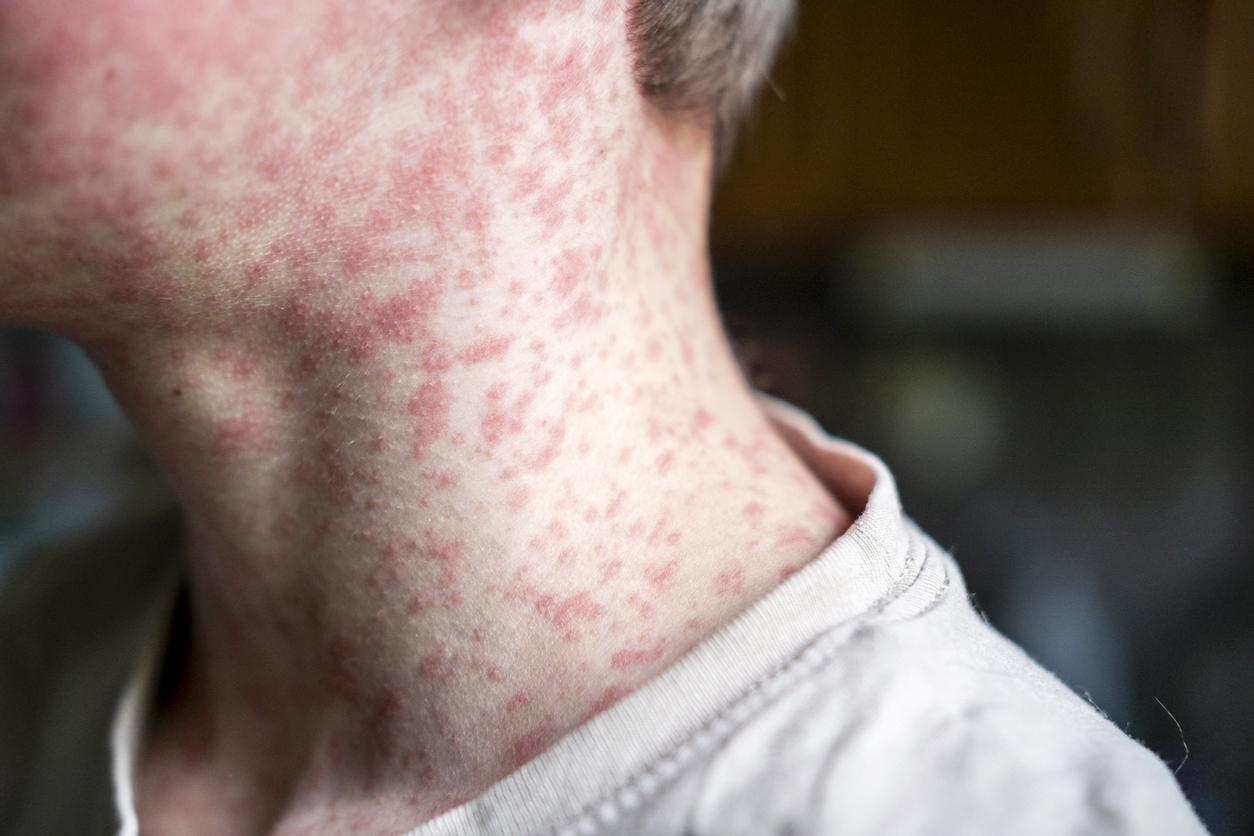Measles is far less contagious when spread by someone who has suffered secondary vaccination failure (SVF) compared to an unvaccinated person, according to a new review of 14 studies, including 11 studies. The review was published late last week in Emerging Infectious Diseases.
"Despite the effectiveness of measles-containing vaccines, infection remains possible in immunized persons," the authors said. "This phenomenon has come to be known as vaccination failure."
Despite the effectiveness of measles-containing vaccines, infection remains possible in immunized persons.
The authors said primary vaccination failure (PVF) results from a person's failure to produce any humoral response to viral antigen and occurs in about 5% of vaccinees, while secondary vaccination failure (SVF) occurs 6 to 26 years after the last vaccine dose and is a result of waning or incomplete immunity. SVF occurs in 2% to 10% of vaccinated people, the authors said.
SVF infections tend to be milder than infections in unvaccinated people, with lower fever, less cough, and overall lower viral loads. However, no universally agreed-upon definition for measles SVF exists.
Low attack rates reported
In the study, more than 3,030 persons were exposed to measles virus from SVF cases, of whom 180 were susceptible. The studies were conducted in both high-income and low-income countries.
A total of 109 measles cases tied to SVF were included in the 14 studies; of those cases, 11 involved patients who transmitted the virus. Those 11 case-patients (10.09%) resulted in a total of 23 further measles cases, or 1 to 8 onward measles infections per case-patient, resulting in an effective reproduction number of 0.063 (95% confidence interval [CI], 0.0 to 0.5). That compared with a reproduction number of 12 to 18 for measles overall, the study authors write.
All included studies also reported a very low attack rate (0% to 6.25%) for SVF cases.
By 2023, a total of 82 countries had achieved measles elimination through high immunization coverage. Though outbreaks can and do occur in these settings, the authors conclude the study by suggesting that the risk for onward transmission from persons with measles SVF is very low but not zero.
"In large outbreak situations, public health management of measles cases in unvaccinated persons could be prioritized before SVF cases," they wrote. "In postelimination settings, routine serologic testing for SVF, in addition to the standard PCR [polymerase chain reaction] tests, may be a useful adjunct for risk stratification during outbreak management."



















